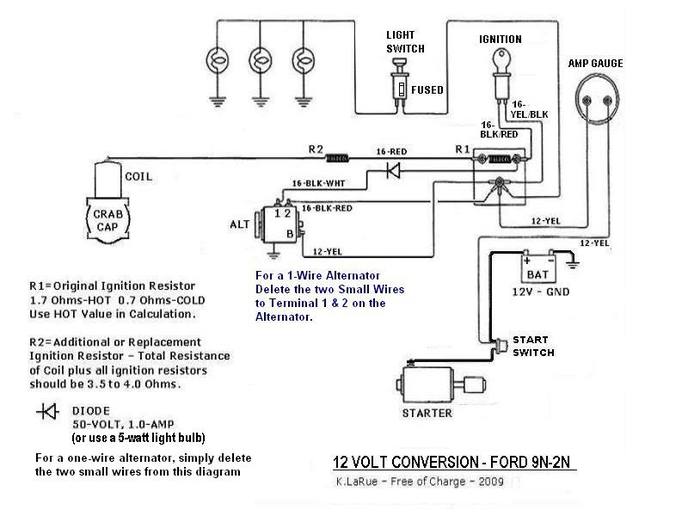When it comes to maintaining and repairing your Ford 9n tractor, having a clear understanding of the wiring diagram is crucial. The Ford 9n Wiring Diagram serves as a roadmap for the electrical system of your tractor, helping you identify and troubleshoot any issues that may arise.
Why Ford 9n Wiring Diagram are Essential
- Provides a visual representation of the electrical system
- Helps in identifying the various components and their connections
- Aids in troubleshooting electrical issues efficiently
- Ensures proper installation of new components
How to Read and Interpret Ford 9n Wiring Diagram Effectively
Understanding how to read and interpret the Ford 9n Wiring Diagram is essential for any maintenance or repair work on your tractor. Here are some tips to help you navigate the diagram effectively:
- Start by familiarizing yourself with the key symbols and colors used in the diagram
- Follow the flow of the diagram from the power source to the various components
- Pay attention to the connections and wiring paths to ensure accuracy
- Refer to the legend or key for any symbols or abbreviations used in the diagram
Using Ford 9n Wiring Diagram for Troubleshooting Electrical Problems
When faced with electrical issues on your Ford 9n tractor, the wiring diagram can be a valuable tool in diagnosing and resolving the problem. Here’s how you can use the diagram effectively for troubleshooting:
- Identify the specific circuit or component that is causing the issue
- Trace the wiring from the power source to the problematic area
- Check for any loose connections, damaged wires, or faulty components along the circuit
- Refer to the wiring diagram to ensure proper reconnection or replacement of components
Importance of Safety
Working with electrical systems can be dangerous if proper safety precautions are not taken. Here are some safety tips to keep in mind when using wiring diagrams:
- Always disconnect the power source before working on any electrical components
- Use insulated tools to prevent electrical shock
- Avoid working in wet or damp conditions to prevent short circuits
- If you are unsure or uncomfortable working with electrical systems, seek professional help
Ford 9n Wiring Diagram
Ford 9n Wiring Diagram

9N Ford Tractor Alternator Wiring Diagram

Wiring Diagram 9n Ford Tractor

9n Ford Tractor Wiring Diagram 6 Volt – lysanns

Ford 9n 12 Volt Conversion Wiring Diagram – Wiring Diagram Pictures

9n ford tractor wiring diagram 6 volt – Wiring Diagram and Schematics
